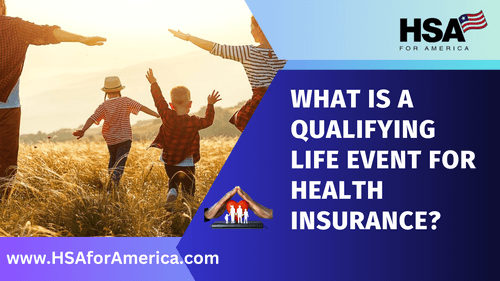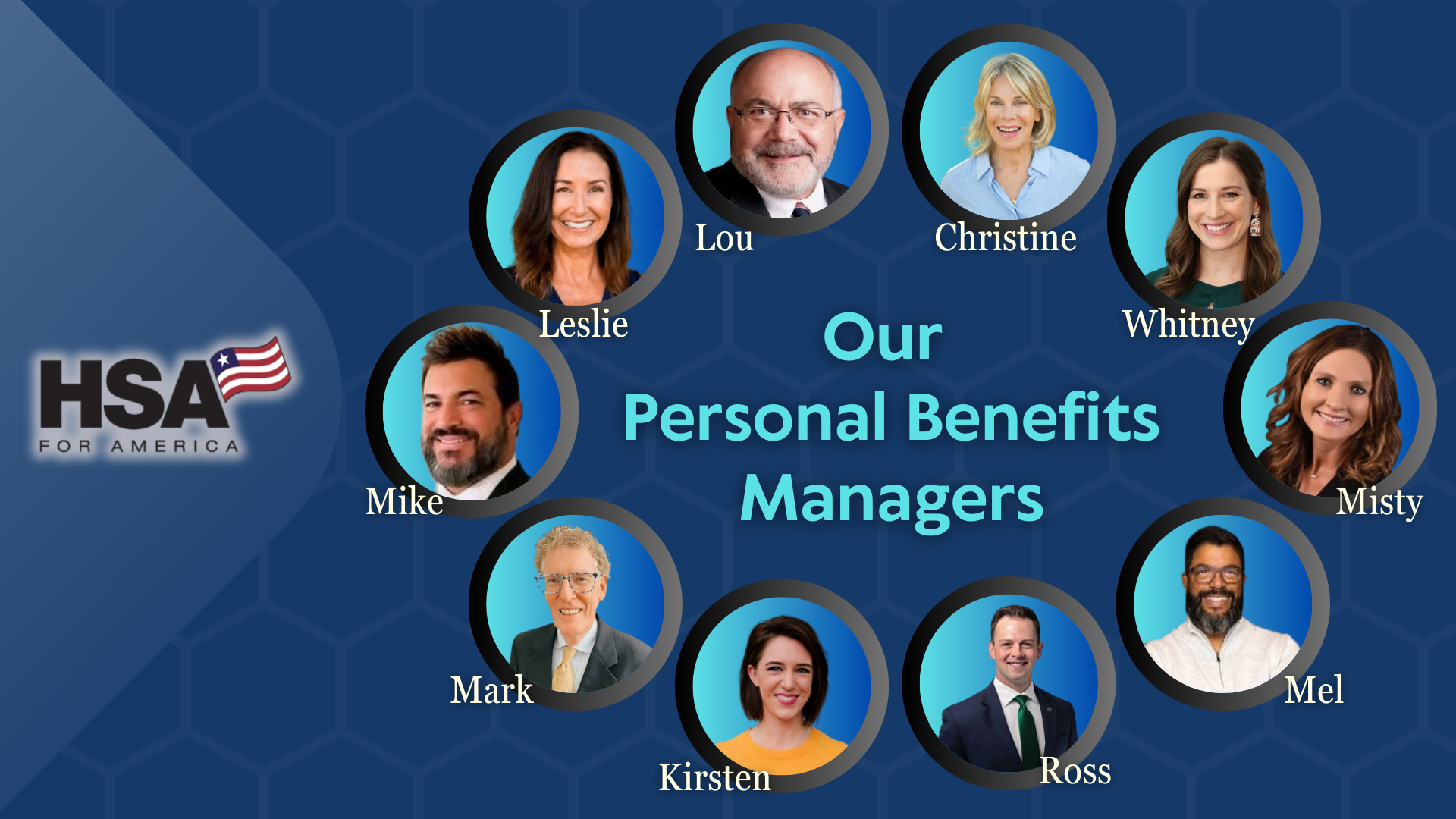You might have had a qualifying life event, or QLE, is a big change in your life that materially changes your need for a health insurance plan.

These events cause you to lose your previous health insurance coverage or require you to add a new dependent to your plan.
In either case, a QLE allows you a limited 60-day special enrollment period, during which time you can enroll in a new Affordable Care Act qualified health insurance plan, even if you’re outside the usual special enrollment period, which is November 1st through January 15th in most states.
Key Takeaways
- A qualifying life event is a significant change in life circumstances that allows enrollment in health insurance outside the regular yearly enrollment period.
- Examples of QLEs include getting married, having a baby, adopting a child, moving, and losing health coverage.
- Special enrollment periods triggered by QLEs typically last up to 60 days after the event occurs.
- During a special enrollment period, you can enroll in a health insurance plan or make changes to existing coverage.
- Understanding QLEs and the enrollment process is crucial for maintaining continuous health insurance coverage during life’s changes.
Compare Pricing on the Best Insurance Plans Available
List of Qualifying Life Events
Here are the major types of qualifying life events that may qualify you for a special enrollment period under the Affordable Care Act:
- Loss of Health Insurance Coverage: Losing your health insurance is a major event that allows you to sign up. This can happen if you lose your job or you turn 26. It also includes losing benefits from Medicaid, Medicare, or CHIP. And, when your parent’s health insurance no longer covers you, you can enroll during a special period.
- Changes in Household: Big changes in who lives with you can also count as qualifying life events. These include marriage, divorce, the birth or adoption of a baby, or a death in the family. It can also include aging out of eligibility for a parent’s health plan, which can occur at age 26.
- Changes in Residence: Moving can be a reason to change your health insurance. This counts if you move to a new area that affects your health plan. It includes changes due to moving for school or work or to a shelter.
- Other Qualifying Events: Other events, such as getting out of prison, gaining U.S. citizenship, and getting discharged from military service, can also let you sign up outside the normal open enrollment period. Significant changes in income, as does starting or ending service with AmeriCorps, can also qualify you for a special enrollment period.
| Category | Examples of Qualifying Life Events |
|---|---|
| Loss of Health Coverage | Losing job-based insurance, aging out of a parent's plan at 26, losing eligibility for Medicare, Medicaid, or CHIP |
| Changes in Household | Getting married or divorced, having a baby, adopting a child, experiencing a death in the family |
| Changes in Residence | Moving to a different ZIP code or county, moving to or from school or work, moving to or from a shelter or transitional housing |
| Other Qualifying Events | Changes in income affecting coverage eligibility, gaining U.S. citizenship, leaving incarceration, starting or ending AmeriCorps service |
After a qualifying life event, you usually have 60 days to enroll in a new health insurance plan. You might need to show documents like birth certificates or marriage licenses to verify the QLE in order to enroll.
Importance of Qualifying Life Events for Health Insurance
Qualifying life events are important because they help people get health insurance when big changes happen.
Without these events, you could only sign up at the end of the year. This might mean going without coverage for a while.
You must have documents to prove your qualifying event. This might be a marriage certificate, divorce papers, or a death certificate. You also need to show a notice that your coverage is ending or that you had health insurance before. Having this proof is important as it shows your event really does impact your health insurance.
Timeframe for Enrolling After a Qualifying Life Event
After a major life event, you usually have 60 days to get health insurance.
This rule helps people make sure they are covered after a big change. The 60-day timeframe starts the day of the event, not from the end of your old insurance.
If you get married or have a baby, your new health insurance can start immediately the month after. Normally, when you apply during a special enrollment period, your health coverage starts at the beginning of the next month.
| Qualifying Life Event | Enrollment Window | Coverage Effective Date |
|---|---|---|
| Marriage | 60 days from the event date | First day of the following month |
| Birth or Adoption | 60 days from the event date | Date of birth or adoption |
| Loss of Coverage | 60 days before or after coverage ends | First day of the following month |
| Permanent Move | 60 days from the event date | First day of the following month |
It’s important to take action quickly after a major life event. You have 60 days to get insurance or update your current plan. Waiting too long could mean waiting for the next open enrollment. This could leave you and your family without health insurance for a while.
Remember, a qualifying life event is your key to accessing health insurance outside of the standard open enrollment period. Know when you can sign up for a special enrollment period and what events qualify. Planning and understanding the system can help keep you and your family covered, even through unpredictable changes.
What If I Don’t Qualify for a Special Enrollment Period?
If you need a health plan but you don’t qualify for a Special Enrollment Period, consider enrolling in a health sharing plan.
These are affordable, low-cost alternatives to health insurance products. They aren’t insurance. Instead, they are community-based and often faith-based associations of like-minded, health-conscious individuals who agree to help share the health costs of their fellow members.
They don’t qualify for a subsidy like traditional health insurance products. But if you’re among the millions who don’t qualify for a subsidy under the Affordable Care Act, they can be big money-savers: they typically cost around 40 to 50% less than the cost of an individual health insurance plan without a subsidy.
Health-sharing plans have no limited open enrollment periods: you can sign up for them at any time.
The chief disadvantage with health sharing is that they typically limit cost sharing for pre-existing conditions for a period of time following enrollment.
LEARN MORE: How Much Money Can Health Sharing Save?
Alternatively, in some states, you can purchase a short term health insurance plan.
These plans can fill in coverage gaps for a few months to almost a year. Click here for free quotes for a short-term health insurance plan, or book an appointment with an expert HSA for America Personal Benefits Manager.
How to Enroll in Health Insurance After a Qualifying Life Event
If you got married, had a baby, or lost health coverage, you might be able to enroll in health insurance now. You must act within 60 days of the event by reaching out to the Health Insurance Marketplace or your state’s exchange.
When you apply for health coverage during this special period, you need to be honest. Tell the marketplace or exchange all the true facts about your situation. Be ready to show documents verifying your qualifying life event. Typically, these include:
- Marriage certificates
- Birth certificates
- Legal adoption papers
- Death certificates
- Termination notices for health coverage
- Proof of prior qualifying health coverage
Compare Pricing on the Best HealthShare Plans Available
Need Help?
Knowing about qualifying life events helps you keep your health insurance up-to-date when important events happen. These events let you sign up for health insurance even when it’s not the usual time.
Learning about qualifying life events helps you stay calm when life changes. Missing the chance to update your insurance could cost you a lot later on.
For expert help in getting a new plan in place for you and your family, schedule an appointment and speak with an HSA for America Personal Benefits Manager. We can help you confirm whether you qualify for a Special Enrollment Period, what your enrollment options are in your area, and whether you would benefit most from a health sharing plan or a traditional Affordable Care Act health insurance plan.
It’s free! There’s no charge whatsoever for a consultation, and you pay nothing extra in premiums by going through a PBM. But by ensuring you enroll in the right health plan for your needs and budget, our expertise may save you hundreds or even thousands of dollars per year.
For Further Reading: The Five Best Health Sharing Plans (2026Update) | Missed The Health Insurance Open Enrollment? Here’s What You Can Do | How Much Does Health Sharing Save Compared to Health Insurance?



